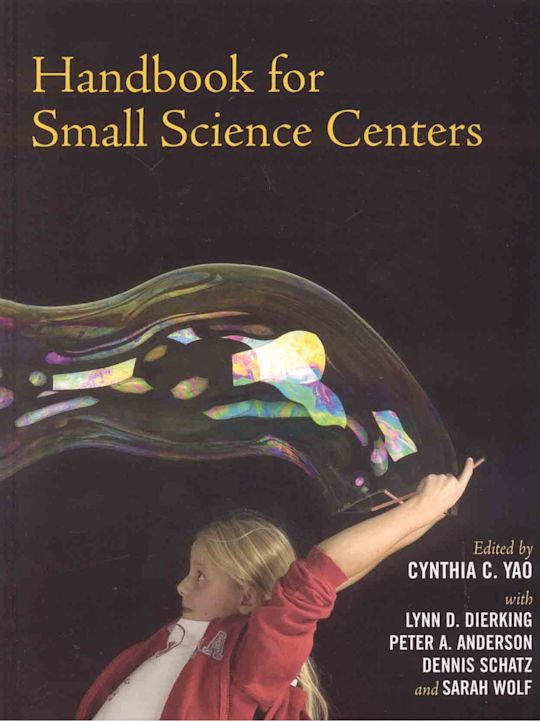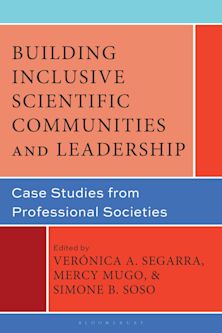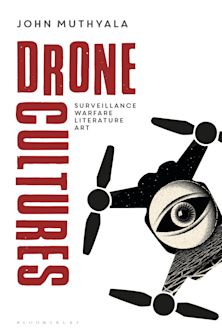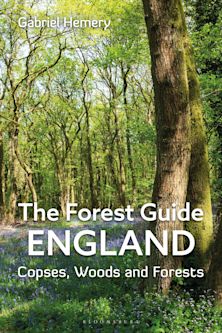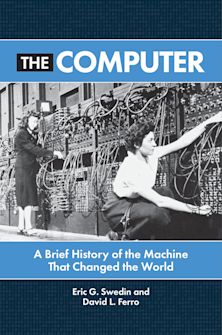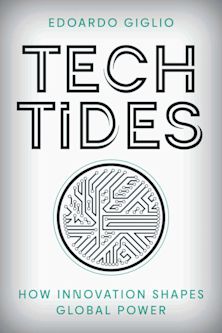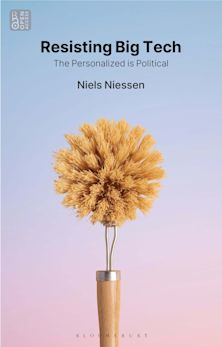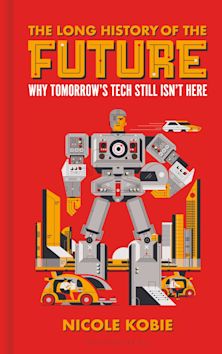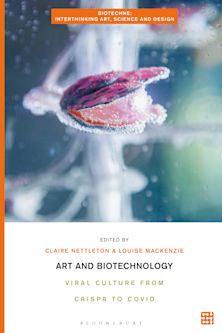- Home
- ACADEMIC
- Science & Technology
- Handbook for Small Science Centers
Handbook for Small Science Centers
Cynthia C. Yao (Anthology Editor) , Lynn D. Dierking (Anthology Editor) , Peter A. Anderson (Anthology Editor) , Dennis Schatz (Anthology Editor) , Sarah Wolf (Anthology Editor) , Pat Adams (Contributor) , American Association of Museums (Contributor) , Association of Science-Technology Centers (Contributor) , Elsa B. Bailey (Contributor) , Mary Baske (Contributor) , Bronwyn Bevan (Contributor) , Colleen Blair (Contributor) , Vicki Breazeale (Contributor) , Kim L. Cavendish (Contributor) , Al DeSena (Contributor) , Kirsten M. Ellenbogen (Contributor) , Adela "Laddie" SkiptonElwell (Contributor) , John H. Falk (Contributor) , Claude Faubert (Contributor) , Peter B. Giles (Contributor) , Kit Goolsby (Contributor) , Hands On! Inc (Contributor) , George E. Hein (Contributor) , Cassandra L. Henry (Contributor) , Asger Høeg (Contributor) , Marilyn Hoyt (Contributor) , Karen Johnson (Contributor) , Maureen E. Kennedy (Contributor) , Lucy Kirshner (Contributor) , Kathleen R. Krafft (Contributor) , Thomas Krakauer (Contributor) , Watson "Mac" Laetsch (Contributor) , Darlene Librero (Contributor) , Laura Martin (Contributor) , Ronen Mir (Contributor) , Alan Nursall (Contributor) , Chuck O'Connor (Contributor) , Paul Orselli (Contributor) , Andrée Peek (Contributor) , Stephen Pizzey (Contributor) , Melanie Quin (Contributor) , Albert J. Read (Contributor) , Beryl Rosenthal (Contributor) , Christen E. Runge (Contributor) , Beverly S. Sanford (Contributor) , Dennis Schatz (Contributor) , Rebecca Schatz (Contributor) , Harold Skramstad (Contributor) , Susan Skramstad (Contributor) , Robert Semper (Contributor) , David Taylor (Contributor) , Charlie Trautmann (Contributor) , Susan B. F. Wageman (Contributor) , Charlie Walter (Contributor) , Robert "Mac" West (Contributor) , Kim Whaley (Contributor)
- Textbook
Handbook for Small Science Centers
Cynthia C. Yao (Anthology Editor) , Lynn D. Dierking (Anthology Editor) , Peter A. Anderson (Anthology Editor) , Dennis Schatz (Anthology Editor) , Sarah Wolf (Anthology Editor) , Pat Adams (Contributor) , American Association of Museums (Contributor) , Association of Science-Technology Centers (Contributor) , Elsa B. Bailey (Contributor) , Mary Baske (Contributor) , Bronwyn Bevan (Contributor) , Colleen Blair (Contributor) , Vicki Breazeale (Contributor) , Kim L. Cavendish (Contributor) , Al DeSena (Contributor) , Kirsten M. Ellenbogen (Contributor) , Adela "Laddie" SkiptonElwell (Contributor) , John H. Falk (Contributor) , Claude Faubert (Contributor) , Peter B. Giles (Contributor) , Kit Goolsby (Contributor) , Hands On! Inc (Contributor) , George E. Hein (Contributor) , Cassandra L. Henry (Contributor) , Asger Høeg (Contributor) , Marilyn Hoyt (Contributor) , Karen Johnson (Contributor) , Maureen E. Kennedy (Contributor) , Lucy Kirshner (Contributor) , Kathleen R. Krafft (Contributor) , Thomas Krakauer (Contributor) , Watson "Mac" Laetsch (Contributor) , Darlene Librero (Contributor) , Laura Martin (Contributor) , Ronen Mir (Contributor) , Alan Nursall (Contributor) , Chuck O'Connor (Contributor) , Paul Orselli (Contributor) , Andrée Peek (Contributor) , Stephen Pizzey (Contributor) , Melanie Quin (Contributor) , Albert J. Read (Contributor) , Beryl Rosenthal (Contributor) , Christen E. Runge (Contributor) , Beverly S. Sanford (Contributor) , Dennis Schatz (Contributor) , Rebecca Schatz (Contributor) , Harold Skramstad (Contributor) , Susan Skramstad (Contributor) , Robert Semper (Contributor) , David Taylor (Contributor) , Charlie Trautmann (Contributor) , Susan B. F. Wageman (Contributor) , Charlie Walter (Contributor) , Robert "Mac" West (Contributor) , Kim Whaley (Contributor)
- Textbook
Exam copy added to basket
Choose your preferred format. Please note ebook exam copies are fulfilled by VitalSource™.
Buy from Bloomsbury eTextBooks
You are now leaving the Bloomsbury Publishing website. Your eBook purchase will be with our partner https://www.vitalsource.com.
Your credit card statement will show this purchase originating from VitalSource Technologies. They will also provide any technical assistance you might require.
You must sign in to add this item to your wishlist. Please sign in or create an account
Description
There has been, and continues to be, an explosion of interest in developing new small science centers that is changing the world of museums. This handbook is designed to be a one-stop source for future and current centers, and anyone interested in the important roles these institutions play in their communities. With articles-all written by leaders in field-covering everything from administration, staffing, finance, marketing, exhibit design, and beyond, this comprehensive resource will be essential reading for institutions that are operating successfully, struggling to survive, and those planning major expansions.
Table of Contents
Chapter 2 Preface and Acknowledgments
Part 3 I. Central Case Study
Chapter 4 1. The Ann Arbor Hands-On Museum: From Dream to Reality
Part 5 II. Case Studies of Other Small Science Centers and Start-Ups
Chapter 6 2. Developing in Phases:A Case History
Chapter 7 3. Hockey, Nickel Mines, and the Pursuit of a Vision: Getting it Done at Science North
Chapter 8 4. Once Small Center's Story: Grass Roots Thrive on Flexibility
Chapter 9 5. Focus and Balance for the Small Museum
Chapter 10 6. Discovery Center Start-Up: Launch Pad in a Mall
Chapter 11 7. Curious Kids' Museum
Chapter 12 8. Science Spectrum: A Science Center for the South Plains of Texas
Chapter 13 9. Science Center in a College: An Unabashadly Autobiographical Account
Chapter 14 10. Science Projects: The Observatory Science Centre, Herstmonceux and Inspire Discovery Centre, Norwich
Chapter 15 11. Experimentarium: A Fairy Tale from Hans Christian Andersen's Denmark
Part 16 III. Getting Started and Running a Science Center
Chapter 17 12. Planning the Building
Chapter 18 13. Sci-Port Discovery Center: How We Operate and Position Our Science Center for Ongoing Success
Chapter 19 14. Over the Top: Building Resources to Open and Grow
Chapter 20 15. Marketing Basics: Applications for Small Science Centers
Chapter 21 16. The Science Shop at Science Spectrum
Part 22 IV. Exhibits
Chapter 23 17. Decision Making on Purpose: Translating Organizational Identity into Effective Experiences
Chapter 24 18. Making Effective Exhibits for Rewarding Visitor Experiences
Chapter 25 19. Learning from My Mistakes
Chapter 26 20. The Use of Objects in a Small Science Center
Part 27 V. Creating Special Exhibits Spaces
Chapter 28 21. Discovery Spaces: Small Museums within a Large Museum
Chapter 29 22. Creating Developmentally Appropriate Early Childhood Spaces in Science Centers
Chapter 30 23. Outdoor Science Parks: Going Beyond the Walls
Chapter 31 24. Traveling Exhibitions: Rationales and Strategies for the Small Museums
Part 32 VI. Education Programs
Chapter 33 25. Developing an Educational Plan
Chapter 34 26. Building Capacity to Work with Schools
Chapter 35 27. The Why and How of Doing Outreach Programming: Fulfilling My Fantasy
Chapter 36 28. Fifty Years of Museum School
Chapter 37 29. Promoting Public Understanding of Research through Family Science Programs at MIT
Part 38 VII. Working in a Science Center
Chapter 39 30. Leading and Implementing Innovation in Your Science Museum
Chapter 40 31. Hiring, Supporting, and Developing Museum Educators for Your Science Center
Chapter 41 32. Explainers: Youth Development at the Exploratorium
Part 42 VIII. Audience
Chapter 43 33. Understanding Your Audience
Chapter 44 34. Girls, Boys, Moms, and Dads: Learning about Their Different Needs in Science Museums
Chapter 45 35. Evaluation 101
Part 46 IX. Governance
Chapter 47 36. Working Model: A Mechanism for the Effective Board
Chapter 48 37. Code of Ethics for Museums
Part 49 X. Transitions
Chapter 50 38. Building a Sustainable Future
Chapter 51 39. Renovation as Innovation: SciWorks, the Science Center and Environmental Park of Forsyth County
Chapter 52 40. Collaborations: From Sharing a Museum Site to Winning NSF Grants
Chapter 53 41. Exploration Place: Science Center and Children's Museum Combined
Chapter 54 42. From Little Acorns
Chapter 55 43. The Tech: The Challenges of Growing from Small to Large
Chapter 56 44. How to Foster Innovation within Your Science-Technology Center: Observations from Under the Seat Cushion
Part 57 XI. Overview of Science Centers
Chapter 58 45. Science Center History
Chapter 59 46. Fanning the Flames: The Exploratorium at the Birth of the Science Center Movement
Chapter 60 47. SESAME Program: The Impact of a PhD Program on Science Museums
Chapter 61 48. Science and Discovery Centers: The European Perspective
Part 62 XII. Science Centers and the Future
Chapter 63 49. Developing a New Business Model for Science Centers
Chapter 64 50. Reality, Variety, and Ingenuity: Futures for Science Centers
Part 65 XIII. Resources
Chapter 66 Appendix A. Resources for Exhibit Fabrication
Chapter 67 Appendix B. ASTC and Related Organizations
Chapter 68 Appendix C. Directory of Science Centers, Institutions, and Individuals Represented
Chapter 69 Index
Chapter 70 About the Authors
Product details
| Published | Oct 10 2006 |
|---|---|
| Format | Ebook (Epub & Mobi) |
| Edition | 1st |
| Extent | 328 |
| ISBN | 9780759114081 |
| Imprint | AltaMira Press |
| Publisher | Bloomsbury Publishing |
About the contributors
Reviews
-
Imagine sitting in a comfortable setting with fifty-five kind, experienced, generous, and almost parental nurturers who reveal all their museum secrets to you so that your personal dream of creating a small science or children's museum can be realized. Consider this book the equivalent of conversations with knowledgeable elders who tell stories containing all the juicy expertise you need, available just when you need it. Keep it by your bedside but keep a pen and paper handy.
Elaine Heumann Gurian, senior museum consultant, The Museum Group
-
Rather than offering a one-size-fits-all model, the strength and potential impact of this book are in the breadth of different stories of starting and developing informal science centers and children's museums as well as the wealth of advice from leaders in the science center field. It is noteworthy that all of the accounts stated the importance of understanding and connecting with the local communities-not only as visitors, but also as co-developers in the creation of dynamic, responsive, informal learning institutions. A big thanks to Cynthia Yao for having the tenacity to start a vital museum and then to create this book of many voices and tales-a book that hopefully encourages readers to consider the potential impact and future directions of these remarkable environments.
Sally Duensing, King's College London and former science and museum liason, Exploratorium
-
Cynthia Yao's Handbook for Small Science Centers is a splendid manual for developing a science center of any size or content. The contributors not only tell their success stories, but what went wrong, why, and how they fixed it. No two sets of goals, challenges, opportunities, and solutions are alike, which is why the fifty concise stories in this book are invaluable. By mixing and matching the experiences chronicled here, anyone involved in creating a new institution will find just the advice, warnings, and inspirations they need for their unique situation.
Alan J. Friedman, director, New York Hall of Science; president of the Visitor Studies Association
-
This wonderful book, mirroring the spirit of the emerging science center movement itself, is chock full of interesting things to learn: modest, practical, accessible, and so much in the real world. In the hands of the visionary with a gleam in her eye on the way to creating a new community-based science program or the seasoned museum worker struggling with today's operating problem, Handbook for Small Science Centers should become a well-thumbed landmark on all managers' desks and a must for every board member's reading list.
Michael Spock, former director, Boston Children's Museum
-
The Handbook for Small Science Centers has become sort of a bible to me; as various challenges and issues present themselves, I find myself flipping through the pages, finding relelvant articles and soaking in the experience and wisdom of colleagues who have done this before. No matter what form of involvement you may have with a science center there's something in this book for everyone.
May/June 2008, Muse
-
The Handbook for Small Science Canters is a thoughtfully written and extremely helpful new resource for the field that can benefit science centers, children's museums, and other institutions. The well-organized and excellently written essays cover a wide range of issues that can emerge in organizing and managing a science center.
Bonnie Pitman, Dallas Museum of Art









